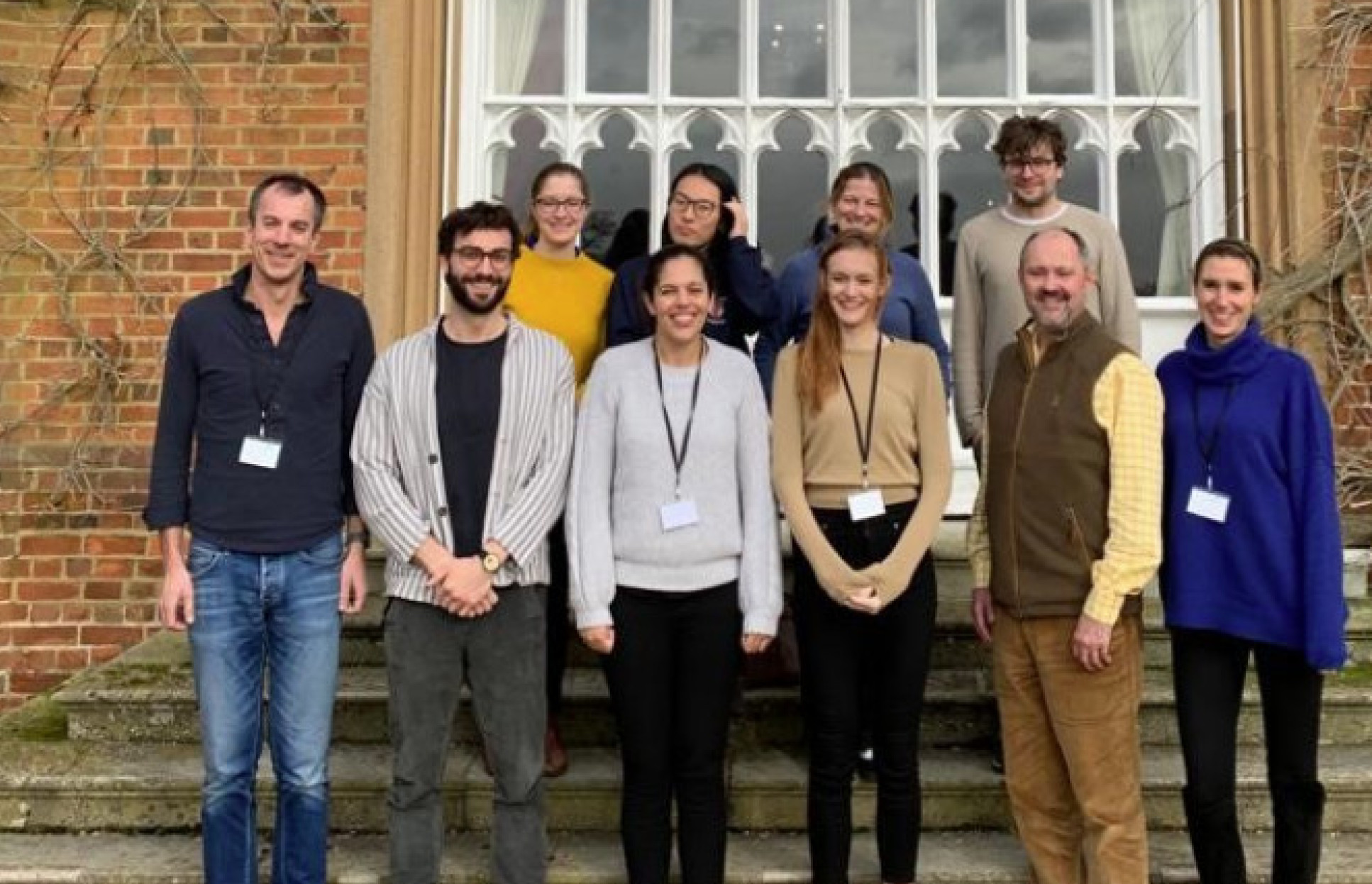
What we do
Our research focuses on translational research in neuropathic pain, particularly in the contexts of infectious disease (HIV, Herpes zoster, HTLV-1 and leprosy), diabetes and other polyneuropathies, and nerve damage related to conflict/military service.
Our main research themes are:
- Preclinical evidence synthesis and methods development (systematic review and meta-analysis), especially as pertains to drug development
- Improving internal and external validity, and rigour in the use of animal models in pain research
- Deep phenotyping of patient cohorts with a view to enabling precision medicine approaches for the treatment of neuropathic. Much of this work is delivered in a collaborative manner with other groups.
- Clinical evidence synthesis and trial methods
- Developing clinical pain management within the concept of Integrated Rehabilitation
- Pain management and teaching in low & middle income countries, with a focus on South and Southeast Asia
- Applied history, with a focus on 20th century conflicts
Why it is important
The Global Burden of Disease studied has shown that, along with mental health, chronic pain is the leading cause of disease burden (Years Lost to Disability) worldwide. Neuropathic pain is a major sub-type of chronic pain defined by the International Association for the Study of Pain as Pain directly caused by a lesion or disease of the somatosensory system (ICD11 - MG30.5). Significant, quality of life impacting, neuropathic pain has a population prevalence of between 7 and 10%, making it an important public health problem. In the absence of disease modifying therapies the clinical management of neuropathic pain is focussed around accurate diagnosis, full assessment of the patient as an individual and pharmacological approaches for symptom control, all of which we seek to improve through our research strategy. This is an area of therapeutic need: current pharmacological options are of modest efficacy, associated with significant adverse effects and responses are difficult to predict at an individual patient level. Furthermore, non-pharmacological approaches for neuropathic pain management are under-explored and under-employed, partially within the context of an interdisciplinary team approach to integrated rehabilitation.
Additional information
Internal:
- Prof Alison McGregor, Faculty of Medicine, Department of Surgery & Cancer
External:
- Prof David Bennet, Nuffield Department of Clinical Neurosciences, University of Oxford
- Prof Malcolm MacLeod, Centre for Clinical Brain Sciences, University of Edinburgh
- CAMARADES (Collaborative Approach to Meta-Analysis and Review of Animal Data from Experimental Studies)
- IMI EQIPD (European Quality in Preclinical Data)
- IMMPACT (Initiative on Methods, Measurement, and Pain Assessment in Clinical Trials)
- DOLORISK
- IMI Europain
- German Research Network on Neuropathic Pain (DFNS)
Clinical Trials
Currently running clinical trials are on hold due to COVID-19.
Experiments
We regularly run experiments in healthy volunteers and patients. These experiments enable us to explore differences in how people respond to stimuli such as pressure or temperature.
Participate in our work
We value patient and public participation in the design and conduct of our work. In addition to clinical trials and experiments, we also run various surveys, literature reviews and focus groups which may be of interest to lay participants, early-career researchers and clinical academics.
If you are interested in participating in our work, please contact Dr David Hohenschurz-Schmidt.
Our researchers
Prof Andrew SC Rice
/prod01/channel_3/media/migration/faculty-of-medicine/andrew-rice_1604419538946_x4-1.jpg)
Prof Andrew SC Rice
Principal investigator
Dr Harriet Kemp
/prod01/channel_3/media/migration/faculty-of-medicine/harriet-kemp_1604420198034_x4.jpg)
Dr Harriet Kemp
Clinical Lecturer
Dr Jan Vollert
/prod01/channel_3/media/migration/faculty-of-medicine/jan-vollert_1604420616139_x4.jpg)
Dr Jan Vollert
Research Associate
Dr Donna Kennedy
/prod01/channel_3/media/migration/faculty-of-medicine/donna-kennedy_1604420730783_x4.jpg)
Dr Donna Kennedy
Clinical Research Fellow
Dr Matt Evans
/prod01/channel_3/media/migration/faculty-of-medicine/matt-evans_1604420832602_x4.jpg)
Dr Matt Evans
Clinical Research Fellow
Tim Pheby
/prod01/channel_3/media/migration/faculty-of-medicine/holding-png-tojpeg-1564655919889-x2_1604421815364_x4.jpg)
Tim Pheby
Technician
PhD students
Alex Kumar
/prod01/channel_3/media/migration/faculty-of-medicine/kumar_1612972776911_x4.jpg)
Alex Kumar
David Hohenschurz-Schmidt
/prod01/channel_3/media/migration/faculty-of-medicine/david-hohenschurz-schmidt_1604421681750_x4.jpg)
David Hohenschurz-Schmidt
Nadia Soliman
/prod01/channel_3/media/migration/faculty-of-medicine/nadia-soliman-head_1604421420139_x4.jpg)
Nadia Soliman
Sarah Dixon Smith
/prod01/channel_3/media/migration/faculty-of-medicine/sarah-dixon_1604421472289_x4.jpg)
Sarah Dixon Smith
Xue Ying Zhang
/prod01/channel_3/media/migration/faculty-of-medicine/coco-zhang_1604421532832_x4.jpg)
Xue Ying Zhang
Honorary group members
Dr Helen Laycock
/prod01/channel_3/media/migration/faculty-of-medicine/helen-laycock_1604421251226_x4.jpg)
Dr Helen Laycock
Honorary Clinical Lecturer
Dr Jerry Draper-Rodi
/prod01/channel_3/media/migration/faculty-of-medicine/jerry-draper-rodi_1604421117415_x4.jpg)
Dr Jerry Draper-Rodi
University College of Osteopathy, Senior Research Fellow
Contact
Group lead:
Prof Andrew SC Rice
Email: a.rice@imperial.ac.uk
Twitter: @PainResearchICL
/prod01/channel_3/media/migration/faculty-of-medicine/whitney-scott_1604421033058_x4.jpg)